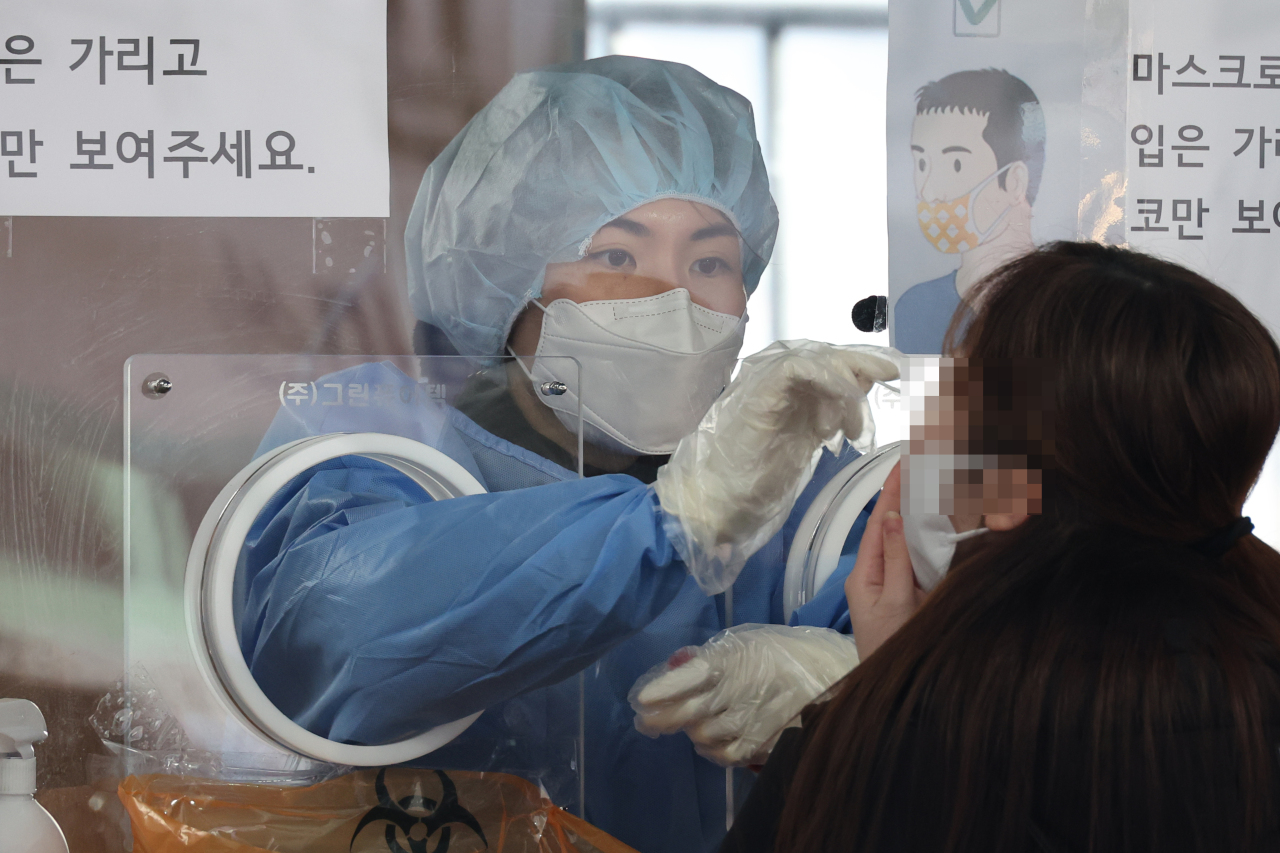 |
Health official takes a nasopharyngeal swab from a test seeker at a clinic set up outside Seoul Station on Friday.(Yonhap) |
South Korea‘s daily coronavirus cases jumped to over 7,000 for the first time in a month on Saturday amid the fast spread of the omicron variant.
The country added 7,009 new COVID-19 infections, including 6,729 local infections, raising the total caseload to 726,274, according to the Korea Disease Control and Prevention Agency (KDCA).
It is the first time since mid-December that the number of daily infections stayed above 7,000.
The daily tally has surged at a fast pace this week from the 4,000 level to over 5,000 on Wednesday and to above 6,000 on Thursday.
The country reported 28 more COVID-19 deaths, raising the death toll to 6,529. The fatality rate came to 0.90 percent.
The number of critically ill COVID-19 patients stood at 433, the KDCA said.
The health authorities have warned of a resurgence in the number of infections as the highly transmissible omicron variant could become the dominant COVID-19 variant in South Korea.
The KDCA also vowed to implement a new medical response system in order to handle the pandemic in a flexible manner in case the daily tally exceeds 7,000.
The detection rate of the omicron variant reached 47.1 percent this week, and it is likely to account for more than half of all infections next week, the KDCA said.
Amid deepening omicron woes, the government has implemented toughened antivirus curbs, including a 9 p.m. curfew on restaurants and cafes, which have been in place since mid-December and will remain effective until Feb. 6.
Currently, the limit on the size of private gatherings is set at six, and the vaccine pass program is required at several kinds of multiuse facilities, including cafes, restaurants and sports arenas.
This week, the government also began implementing extra antivirus steps ahead of the Lunar New Year holiday. This year‘s Lunar New Year falls on Feb. 1, and the holiday lasts until Feb. 2.
During the two-week special quarantine period from Thursday, face-to-face meetings at nursing facilities will be banned, and non-contact meetings will be allowed only after prior reservations.
Dining in at highway service areas will be banned, the KDCA said, adding that nine temporary COVID-19 testing stations will be set up at highway rest areas, and bus and train stations across the country.
As of Saturday, 43.78 million people, or 85.3 percent of the country’s 52 million population, have been fully vaccinated, and 24.97 million, or 48.6 percent, have received booster shots, the health authorities said. (Yonhap)







![[Robert Fouser] Accepting migrants in South Korea](http://res.heraldm.com/phpwas/restmb_idxmake.php?idx=644&simg=/content/image/2024/10/31/20241031050896_0.jpg)
